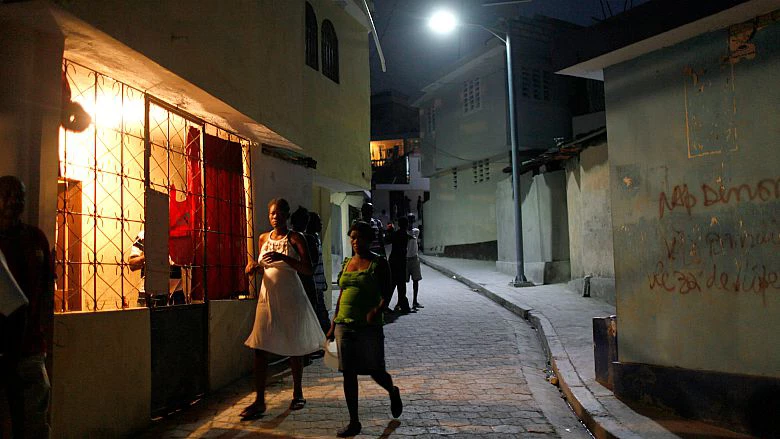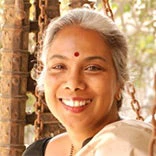Also available in: Español | Français | العربية

Energy is fundamental to economic growth and environmental sustainability. Sustainable Development Goal 7 -- "Ensure access to affordable, reliable, sustainable, and modern energy for all" -- recognizes that energy underpins progress in all areas of development. But 1.1 billion people still live without electricity , and another 2.9 billion live without modern fuels for cooking and heating.
Recognizing this gap is one thing. But having the working partnerships, monitoring tools and financing to move forward is another matter. The great news about the Energy SDG is that these pieces are finally falling into place.
A major factor in this momentum is Sustainable Energy for All , an initiative set up after Rio+20, the UN's 2012 Conference on Sustainable Development in Rio de Janeiro. The SE4All initiative has high-level leadership and strong political support. Co-led and chaired by UN Secretary General Ban Ki-moon and World Bank Group President Jim Yong Kim, it has quickly brought together the public sector, private sector and civil society around three ambitious goals: ensuring universal access to modern-energy services; doubling the rate of improvement in energy efficiency; and doubling the share of renewable energy in the global-energy mix.
These goals now form the basis of the Energy SDG. They also define the World Bank's Energy Global Practice , which I lead. More than 80 countries now align their efforts with the goals, with political support driven by Ministers of Energy all the way up to Heads of State. National and local civil-society groups have become essential players -- urging their countries' leaders to align energy policies with the goals. And to gauge progress toward these goals , the World Bank and its partners produce a " Global Tracking Framework " (GTF) report every two years.
The second GTF report -- released this past May -- made the challenges and opportunities abundantly clear. On the positive side, between 2010 and 2012, the global-electrification rate increased from 83 to 85 percent, and 220 million people got energy access for the first time. Among other promising trends, modern renewables (hydro, wind, solar, geothermal) grew from 8.4 percent in 2010 to 8.8 percent in 2012 of total global-energy consumption, while global-energy intensity fell more than 1.7 percent a year over the two years of tracking.
We need to dramatically accelerate these gains . For renewables, despite enormous strides driven largely by lower technology costs, we need to see annual growth of 7.5 percent a year, up from 4 percent in 2012. We need to improve efficiency and lower the world's energy intensity by at least 2.6 percent a year. And regions with the greatest energy deficits -- Sub-Saharan Africa and South Asia -- need our help to improve energy access.
Such accelerated action will require serious investment. Already, SE4All has helped lay out a realistic financing plan with inputs from leading financiers who are part of the partnership. The initiative's finance committee, chaired by World Bank Group President Kim, estimates that the world needs to triple its investment in sustainable-energy infrastructure per year, from around $400 billion now to $1.25 trillion by 2030.
We believe that this level of private capital is available, but investors tend to be wary to enter new markets that they regard as risky. That's where development partners like the World Bank are making a difference. Working closely with governments, we are helping reduce risk and build strong, reliable energy institutions. It also means laying out energy-investment prospectuses to attract private capital and identifying a range of financial instruments, such as guarantees, that give investors the confidence they need. In Myanmar, for example, we have been part of a broad effort with a host of other development partners to get the $700 million National Electrification Planoff the ground. Another World Bank Group initiative, Scaling Solar, is helping countries in sub-Saharan Africa develop utility-scale solar power inexpensively and quickly -- in as little as two years -- through a "one stop shop" of advisory and financial services.
Helping partners unite to pool ideas and expertise is the sort of catalyzing effect that the Energy SDG will greatly accelerate. And as the world mobilizes to meet the Energy SDG, there will be direct benefits to progress on other goals, particularly health, gender, jobs, and education. These are exciting times to be part of a global community looking for real-world solutions to urgent development challenges. We're confident we can make it happen.
This blog post was originally published on Huffington Post.


Join the Conversation